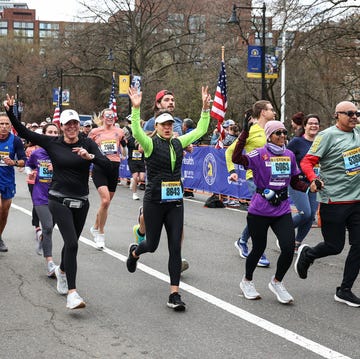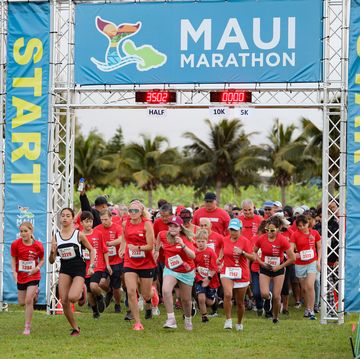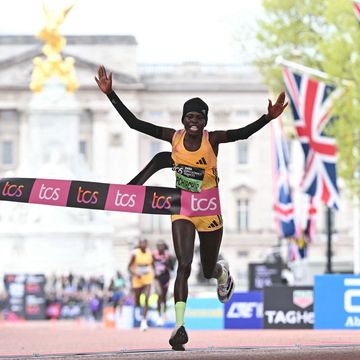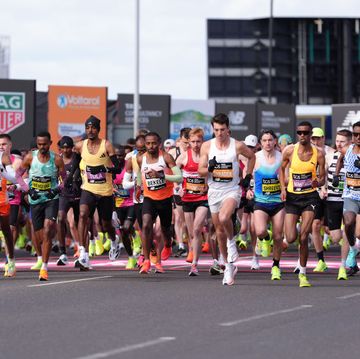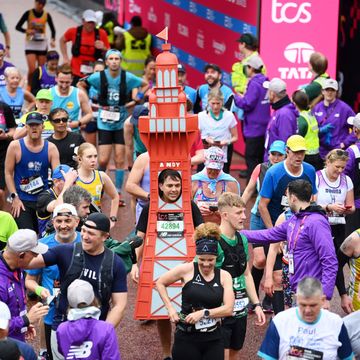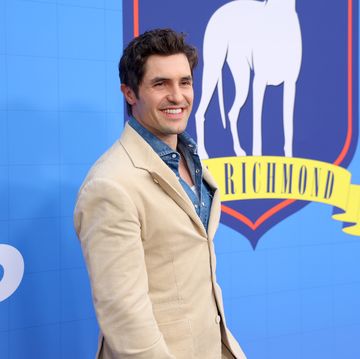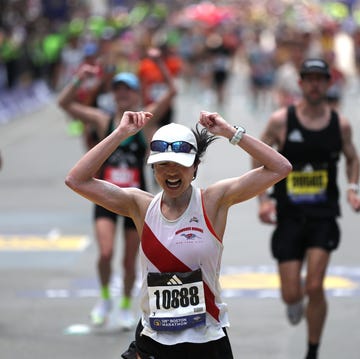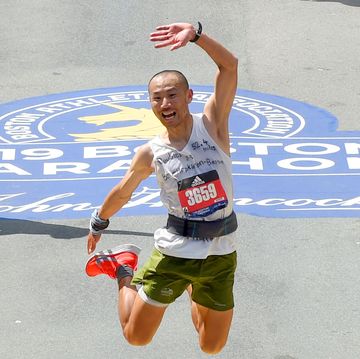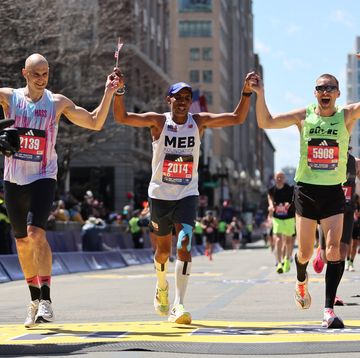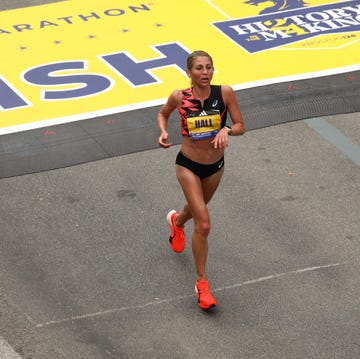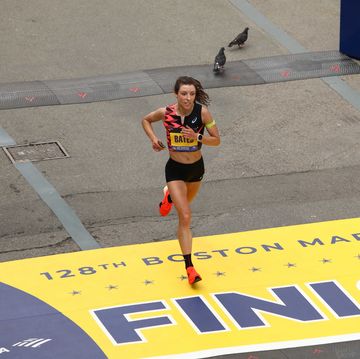Ben True, who won the USA 15-K (and $12,000) in Florida in 43:38 on March 9, will be part of the U.S. team at the IAAF World Cross Country Championships in Poland on March 24. He qualified by placing fifth at the USA Cross Country Championships on February 2. True, 27, is a Maine native who attended Dartmouth College and is again based in New Hampshire, training under Dartmouth’s current coach, Mark Coogan. True was the USA 5-K road champion in 2011 and 2012. He was sixth in the 2012 U.S. Olympic Trials in the 5000 and 12th in the 10,000. In college, he was a cross country skier on Dartmouth’s NCAA championship team.
You were one of five runners nearly side by side on a bridge at the USA 15-K with about a mile to go. What did you think was going to happen? Were you completely confident that you were going to be able to pull it out?
Ben True: Yeah, we were basically shoulder to shoulder, cresting the top of the hill. I figured that a few of them might have been wavering a little bit more than the others of us. I knew that the real racing wasn’t going to happen until the downhill into the straightaway. I was pretty confident in my kick, and I was also pretty confident that Bobby Curtis was going to do a pretty large move on the downhill to get away from me. It actually played out just as I was thinking it was going to. There’s a 90-degree turn and you have 100 to 150 meters to the finish and I was just going to wait and make my move there [Curtis finished two seconds behind True].
The confidence in your kick – is that something you usually have, or is that based on recent training sessions?
BT: I’ve used that to my advantage in a lot of the road races that I’ve run. I always have that in the back of my head, knowing that I just need to work to be in a position to use it at the end a race.
In February and March, there are lots of choices to be made among indoor track, the roads, and cross country. As a professional, is it hard to choose what your priorities should be?
BT: You really have to choose one thing to really focus on and go from there. I’ve never really been an indoor track guy. I think I really only have three indoor track races to my name, because all through college, I skied in the winter time. So I’m always really apprehensive about running on an indoor track. I do a few workouts on it every year but I’m always prone to injury on them. I’ve never looked to indoor track season as a focus. I think that’s probably going to change next year. The plan is to go down to the mile and work on my speed a little bit more.
But it was a world cross year [the championships are now biennial], so the idea was I might as well make cross country the focus. And then Jacksonville is just at a nice time to be able to use it as a tune-up before going over to Poland.
You have a lot of short-distance people moving up at world cross country. It’s never tactical. If you blink for a second, they’re gone. Is this what you’re anticipating in Poland?
BT: Yeah. I raced two years ago. You’re in an all-out sprint from the start, and guys are slowly pulling away from you. You expect that the pace will settle at some point, but it never really does. It is different from a track race or a road race, to be sure. It’s a pretty neat sight to behold. And you have to be prepared to go hard, and just to suffer the rest of the way. I went out really hard and I was luckily able to at least maintain where I was [True was the top American, 35th, in the 2011 world cross country championships].
Do you think there’s a prospect of a team bronze, behind Kenya and Ethiopia, at the championships in Poland?
BT: You could send a good team over and never really know how everyone’s going to play out on that day because the courses are over the place. But with only scoring four guys, I think that helps us. If we all have good races, I could easily see our top four all being in the top 25, and if that’s the case, I think we have a good shot at getting the bronze.
Do you think your fitness has improved since USA Cross Country?
BT: Definitely. At USAs, I finished the race and it was one of those moments of, “Whoa, I’m definitely out of shape right now.” It was the start of getting back into hard workouts. I don’t think my race fitness was there. I was just doing a lot of mileage.
You had Lyme disease last year. Have the effects of that dissipated completely?
BT: As soon as I got back from the [Olympic] Trials, I was immediately on a course of strong antibiotics. It clearly was a night-and-day difference. After about two days, I started coming around and feeling good again. I kind of wish that I knew that was going to be the case going into it, in which case I probably would gotten the antibiotics going into the Trials. But you never really know how antibiotics are going to affect your system.
Were you training hard again before July was over?
BT: I went over to Europe and did a few races and then called it a season at the end of July. I had some decent results. I ran 13:20 at a Belgian meet [for 5000] and a 7:44 3-K in Ireland.
You’re coached now by Mark Coogan, who’s also had great success with his women runners [including 2013 NCAA Indoor 5000 and 3000-meter champ Abbey D’Agostino]. What’s different about his approach or his personality?
BT: He just has a really calm personality. He definitely wants to see the best in everybody come out. He takes your success very personally. It’s good to see in a coach. I don’t think he’s doing anything special. He’s a big fan of consistency over time. He doesn’t want to see his athletes killing a spectacular workout. He’d rather everybody have just solid workouts all the time. He’ll rein you in if he thinks you’re going overboard in a workout. He just has a good demeanor about him.
You’ve been witness to the rise of Abbey D’Agostino at Dartmouth. Do you have any insights into that?
BT: To be honest, not too much. We work out at different times. But it is amazing, her rise in the sport. When she came into Dartmouth, she was nobody and has quickly become one of the best in the country.
When I was at Dartmouth, the attitude on the women’s team was a lot different. Going into NCAAs wasn’t really a thought in their mind. There’s a new air about the team nowadays. Last year, they were third in the distance medley relay [at NCAA Indoors]. Something like that, where you have four women at Dartmouth that put together at third at NCAAs, would have been unheard when I was there. It’s really neat to see how the whole program has been elevated.
In track, will the 10,000 be more of a focus this year?
BT: We’ll see. I’ve really only had three 10-Ks in my life on the track and really only had one of them be successful. I’ll definitely run a 10-K at Payton Jordan [at Stanford on April 28]. Seeing as the standard for Moscow [the world championships] is 27:40 and last year I ran 27:41, I’ll have to take a second or two off. I’ll probably do a tune-up 5-K before Payton Jordan and then probably try and run a fast 5-K before USA and then be able to make a decision based on that. I’m leaning toward the 10-K, but you never know.


